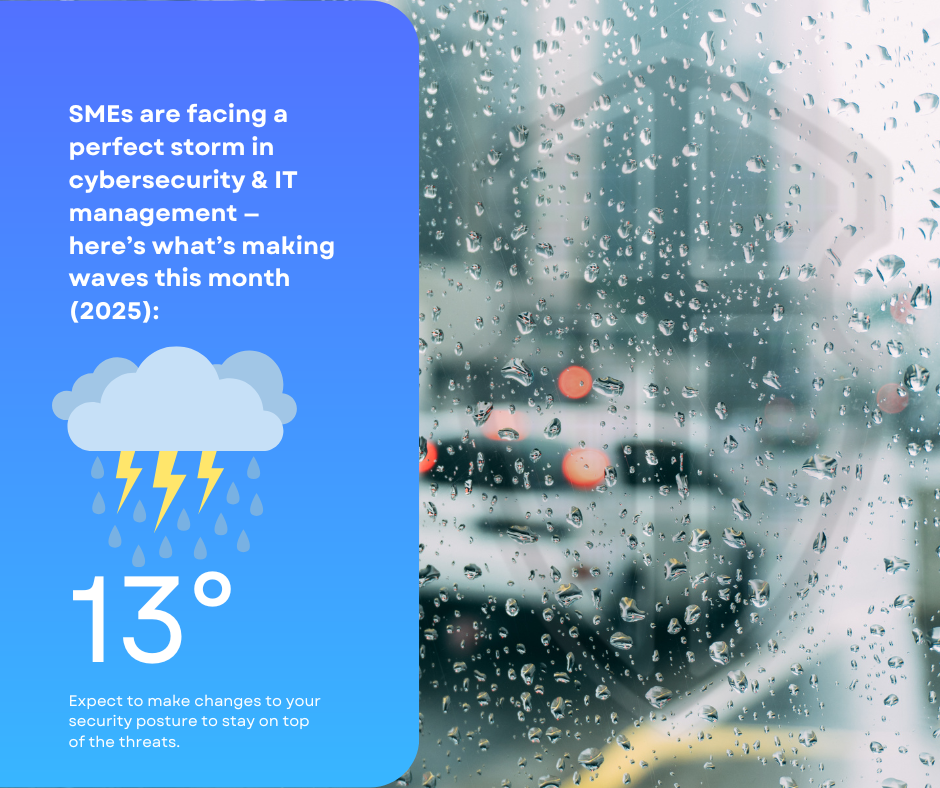Why SMEs Are a Hacker’s Favorite Target: The Hidden Risks You Can’t Ignore
Cybersecurity threats are no longer limited to global corporations. In fact, cybersecurity blind spots in SMEs have become a goldmine for cybercriminals. Many small and medium-sized businesses believe they’re too insignificant to attract attention — but that assumption is exactly what makes them such appealing targets.
Why SMEs Are on the Radar
Hackers actively target SMEs because they often lack the budgets, tools, or expertise to build strong cyber defenses. As a result, these businesses are easier to breach and slower to detect threats — especially when staff haven’t received proper cyber awareness training.
The Top Risks Facing Small and Medium-Sized Businesses Today
Understanding these specific risks is key to building stronger defenses:
1. Phishing Attacks
Employees often fall for emails containing malicious links or requests for login credentials. Even your most cautious team member can be fooled by a well-crafted phishing message if they haven’t been trained to spot one.
2. Ransomware
This threat is no longer exclusive to large corporations. Today, SMEs are prime targets because attackers know smaller firms are more likely to pay quickly just to resume operations.
3. Weak Password Practices
Reused passwords, default logins, and the absence of two-factor authentication make it easy for attackers to brute-force their way into critical systems.
4. Unpatched Software
Outdated plugins, apps, and operating systems present a major vulnerability. Many SMEs delay updates for convenience — unknowingly leaving doors wide open for cyber intrusions.
5. Third-Party Risk
When you work with outsourced vendors, SaaS tools, or freelancers, your data may become exposed through less secure external networks. Without oversight, these partnerships can create serious security gaps.
Cybersecurity Blind Spots in SMEs: A Real Risk
Most SMEs don’t realize they’ve been compromised until weeks or even months after the breach. These blind spots include:
-
Lack of employee training
-
No incident response plan
-
Ignoring mobile device security
-
Assuming antivirus software alone provides sufficient protection
Left unaddressed, these oversights can cause reputational damage, legal exposure, and in some cases, total business closure.
What Can You Do Right Now?
Start by conducting a cybersecurity risk assessment to identify your company’s most vulnerable areas. Then take action by establishing clear security policies, investing in staff training, and ensuring systems and software are regularly updated.
Rather than assuming your business is too small to be a target, act as if it already is — because chances are, it’s already on a hacker’s radar.
For more eye-opening stats and insights into the threats most SMEs overlook, read:
🔗 “Surprising Cybersecurity Facts Every SME Should Know”
Final Thought
Cybersecurity is no longer just an IT issue — it’s a business survival issue. By addressing the cybersecurity blind spots in SMEs, you protect more than just your data. You safeguard your customers, your revenue, and your reputation.




